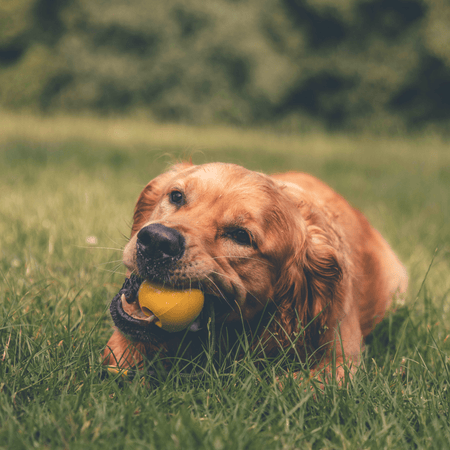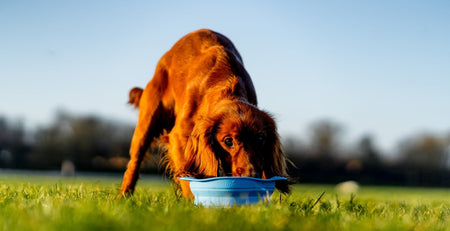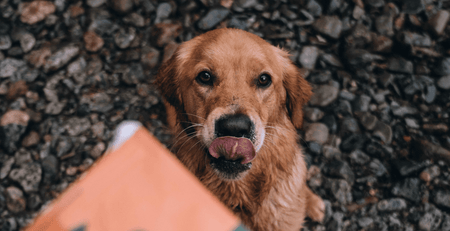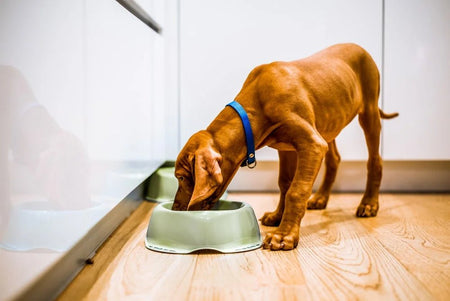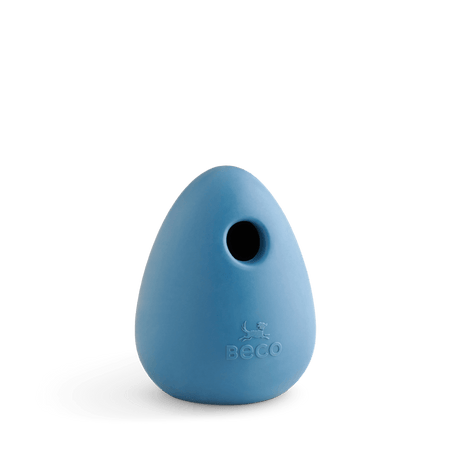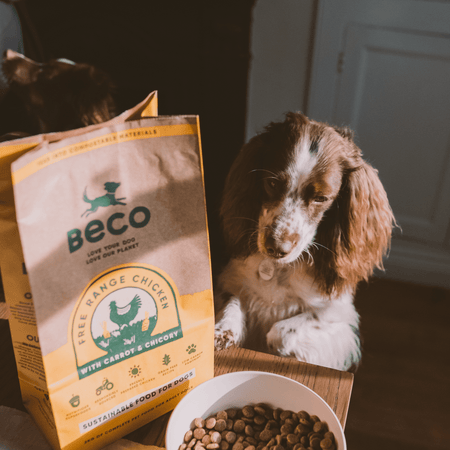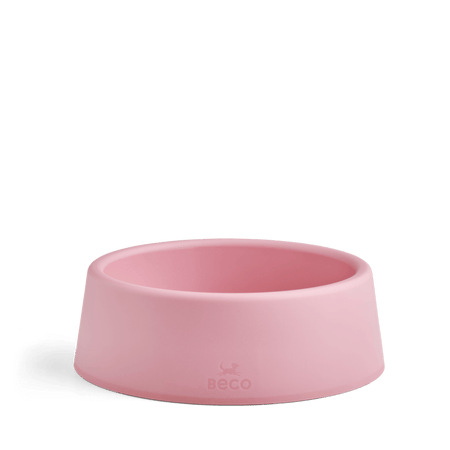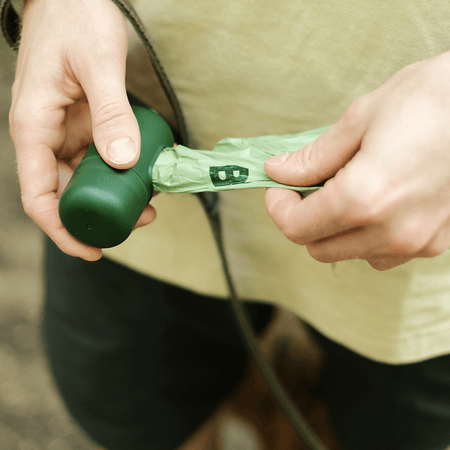Watching your beloved pup munch on grass can spark worry and confusion.
Is something wrong? Are they feeling sick?
Take a deep breath. Grass-eating is more common than you might think, and most of the time, it's completely normal.
We're here to help you understand why dogs eat grass and when you might need to pay closer attention.
- Dogs eating grass could signal boredom, curiosity, or a dietary need for fibre or upset stomach relief.
- Persistent grass-eating paired with vomiting or lethargy might indicate a deeper health issue.
- Not all grass-eating dogs are sick, it’s normal behaviour in most cases.
- Address grass-eating with mental stimulation, proper nutrition, and ensuring your pup’s environment is engaging.
What Does a Dog Eating Grass Indicate?
Grass-eating can mean many things, from boredom to tummy trouble. For most pups, it’s a normal quirk.
According to studies done at the University of California, grass isn’t necessarily a go-to remedy for upset stomachs. In fact, a survey of 1,500 dog owners found only 22% of dogs vomited regularly after eating grass, and just 8% showed signs of feeling unwell before eating it.
6 Common Causes of Grass-Eating
1. Boredom or Stress Relief
Dogs are smart and energetic creatures. Without enough mental stimulation, some turn to behaviours like eating grass.
What should you do if your dog eats grass due to boredom?
Keep their minds and bodies busy. Try puzzle toys, regular walks, or games like fetch. If stress is the culprit, look for triggers like loud noises or separation anxiety and address them.
2. Tummy Troubles
A common belief is that dogs eat grass to make themselves sick. While this might happen occasionally, most grass-eating dogs don’t vomit after grazing.
So, do dogs eat grass when they are sick? Sometimes, but it’s not as straightforward as you might think.
If your pup eats grass and vomits often there could be an underlying issue like an upset stomach or even worms. And no, they’re not trying to self-medicate - they’re more likely reacting to discomfort.
3. Nutritional Gaps
Dogs are omnivores, meaning their diet includes both plant and animal matter. Sometimes, eating grass may hint at missing nutrients.
But before you rush to revamp their meals, know this: high-quality dog foods are balanced, so nutritional deficiencies aren’t the common culprit.
Still, if you’re asking, what are dogs lacking when they eat grass, consider speaking with your vet. They might suggest tweaks to your dog’s diet or recommend supplements.
| Signs of Nutritional Gaps | Description |
|---|---|
| Dull coat or hair loss | Lack of essential fatty acids or nutrients like biotin can affect coat health. |
| Low energy or lethargy | Insufficient caloric intake or missing key nutrients like protein |
| Digestive issues | Chronic diarrhoea or constipation may indicate a lack of fibre or imbalance in their diet. |
4. Instinctive Behaviour
Grass-eating might be traced back to your dog’s wild ancestors. Wolves and wild canines occasionally graze, likely as a way to supplement their diet or aid digestion.
So if your dog is eating grass every day, it could simply be an instinctual behaviour.
5. Taste and Texture
Some pups just have quirky palates and enjoy the taste or texture of grass. It’s similar to how they might enjoy gnawing on a stick.
And yes, it is usually okay for dogs to eat grass as long as it is clean and untreated with chemicals.
6. Compulsive Eating
Occasionally, grass-eating becomes excessive or compulsive.
If your dog seems fixated on eating grass and won’t stop, it might signal a behavioural issue or an underlying health condition.
This is especially true if you notice your dog suddenly eating grass like crazy.
Should I Let My Dog Eat Grass?
It’s a valid question: should I let my dog eat grass when they’re sick? In most cases, a few nibbles won’t hurt. But there are risks to consider.
Grass treated with pesticides or herbicides can be toxic, and parasites like lungworms may lurk in contaminated areas.
If you’re unsure about the safety of the grass your dog’s munching on, it’s better to err on the side of caution.
How to Manage Grass-Eating
To nip excessive grass-eating in the bud, make sure your dog is eating a well-balanced diet, staying active, and getting plenty of attention.
And if all else fails, consult your vet for advice tailored to your pup’s needs.
When to Worry
Most of the time, grass-eating is harmless. But if your dog shows these signs, it’s time to call the vet:
Persistent Vomiting After Eating Grass
Occasional vomiting isn’t unusual when dogs eat grass, as it may help them clear out something upsetting their stomach.
But if your pup vomits repeatedly or can’t seem to keep food or water down, the problem could be more serious like gastrointestinal blockages or infections.
Get your pup to the vet to prevent dehydration and address underlying issues.
Lethargy or Loss of Appetite
A sudden drop in energy or refusal to eat might signal more than just an upset stomach. These signs can indicate underlying conditions such as parasites, liver issues, or nutrient deficiencies.
If your pup seems tired or uninterested in food, consulting your vet will help determine if their grass-eating is connected to a broader health concern.
Signs of Discomfort or Distress
If your dog appears restless, whines, or hunches over, they might be in pain or have digestive trouble.
These behaviours can be linked to grass-eating, particularly if your dog ate harmful substances or if the grass-eating stems from a more serious condition like pancreatitis.
Frequently Asked Questions
Do dogs eat grass because they have worms?
While it’s a popular theory, there’s no concrete evidence linking grass-eating to worms. However, if your dog’s grass habit is paired with other signs like weight loss or diarrhoea, it’s worth checking for parasites.
Why do dogs eat grass on walks?
The grass on your walk might simply catch your dog’s attention with its fresh smell or texture. It’s usually harmless unless the area is treated with harmful chemicals.
Is it okay for dogs to eat grass every day?
If your dog eats grass every day but seems healthy and happy, it’s likely no cause for alarm. Keep an eye out for any changes in behaviour or health.
What should I do if my dog eats grass excessively?
Start by observing any patterns. Does it happen at certain times of the day or in specific locations? If the behaviour is excessive or compulsive, consult your vet to rule out medical or behavioural issues.
Conclusion
While grass-eating might raise concerns, it's usually normal behaviour for our canine companions.
From boredom to instinct, understanding the reasons behind this habit helps you make better choices for your dog's wellbeing. Keep an eye out for warning signs like persistent vomiting or lethargy, but remember that most grass-eating is harmless.
The key is providing proper nutrition, mental stimulation, and regular exercise.
Ready to support your dog's health? Browse our range of nutritious grain-free dog food or check out our range of toys to keep your pup happy and engaged.

